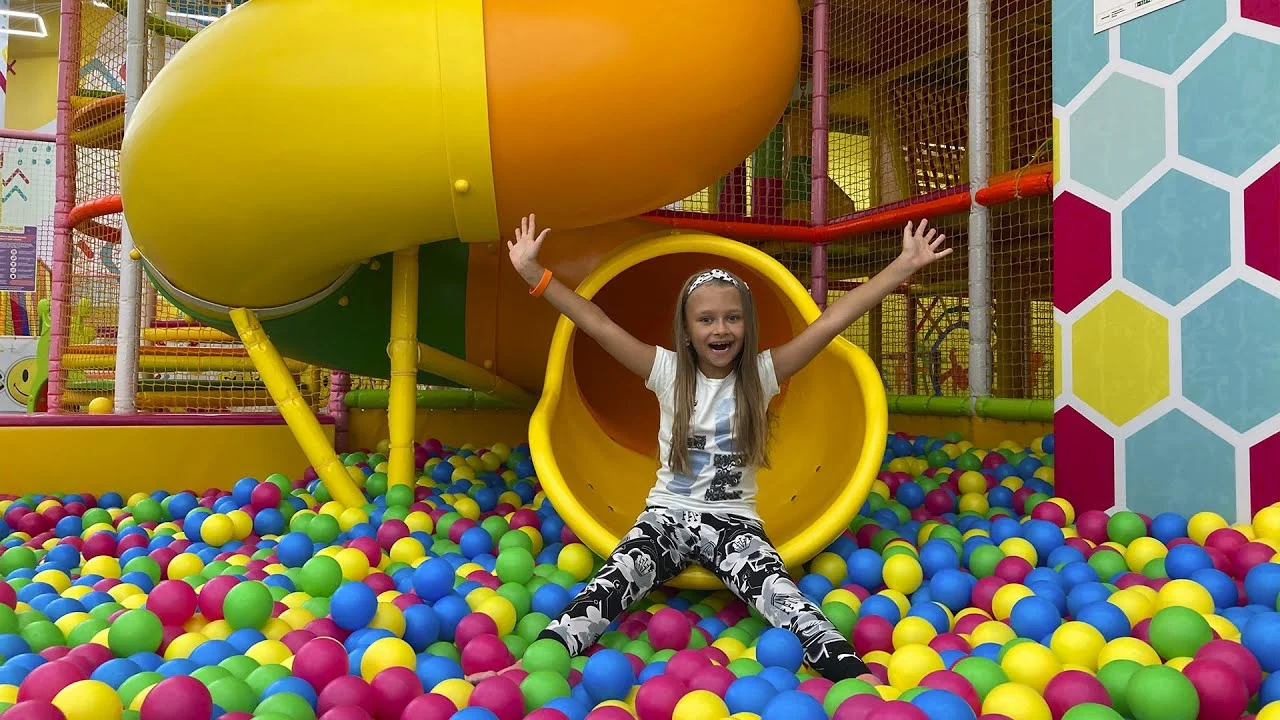While the obvious benefits of having an outdoor playground are safety, there are many benefits to an indoor playground as well. Besides being safer, indoor playgrounds are also easier to maintain and can promote creativity and socialization among children. Let’s take a closer look at these benefits. Also, check out which types of outdoor conditions are a trigger for asthma and allergies. Which playground is best for your child? Listed below are some considerations to consider.
Indoor playgrounds are safer than outdoor playgrounds.
Children benefit from physical activity and vitamin D from playing outdoors. Children need 400-600 IU of vitamin D daily. Outdoor playgrounds provide this essential nutrient in the right amounts. Studies show that kids who play outside are healthier, more energetic, and less likely to develop nearsightedness. Children who play outdoors can also develop better eyesight, have longer attention spans, and increase their vitality. Indoor playgrounds also provide more opportunities for hands-on learning.
Outdoor playgrounds can be dangerous, especially when located near busy roads or shared with dogs. While many children enjoy playing outdoors, they cannot safely enjoy a playground that is not properly supervised. An indoor playground is a safer option and can be more expensive. In addition to preventing accidents and injuries, these spaces are safer for both kids and other people. The weather is often a major factor in outdoor playgrounds, so consider the safety of your child and school when choosing a playground.
Another difference between indoor and outdoor playgrounds is cleanliness. Indoor playgrounds have employees who check on children and clean playground equipment. They also provide hand sanitizers, safety masks, and other monitoring features. On the other hand, outdoor playgrounds depend on Mother Nature and rain showers to keep the playgrounds clean. One HomeAdvisor article found that outdoor play areas had an average of 1500 times more bacteria than indoor playground tunnels. In addition, outdoor playgrounds, even those that are fenced, are still susceptible to graffiti and broken playground equipment.
Another major difference between indoor and outdoor playgrounds is the presence of cords. The cords of outdoor playground equipment can become hot, and children should be careful to avoid these when playing outdoors. Outdoor playgrounds have various hazards relating to climbing, slides, and swings. It’s important to know which of these poses the highest risk to children and avoid those that pose the highest risks. If your outdoor playground does not have these issues, you may want to consider an indoor playground.
In addition to being much safer, indoor playgrounds are more accessible all year round, providing a climate-controlled environment where children can play and sleep without the worry of falling. Many indoor playgrounds also feature areas for creativity and imaginative play, such as role-playing villages. Unlike outdoor playgrounds, indoor playgrounds are also cleaner, which means that they are less likely to cause an accident. As an added benefit, these facilities are usually maintained more often than their outdoor counterparts.
They are easier to maintain
There are several advantages of indoor playgrounds. For one thing, they are easier to clean than outdoor playgrounds. You can thoroughly clean visible surfaces at least once a week. Dust tends to accumulate in the areas where children play the least, so cleaning these areas at least once a week is essential. Battery-operated vacuum cleaners are a good option, as they do not require a power cord.
Using sanitizers to disinfect surfaces can help reduce the number of germs on the surface. Sanitizers are kid-friendly and environmentally friendly. They are effective in removing 99.9% of germs, but you need to follow the directions. Disinfectants are a more thorough option, removing 100% of germs. They kill fungi, bacteria, and viruses. It is best to use a disinfectant after cleaning the playground surfaces, which is best done after the initial cleaning.
Consider hiring a service provider to do an annual inspection for a professional. This professional can identify problems you might overlook and schedule necessary repairs and parts replacements. Regular inspections of your indoor playground are crucial to its health and can prevent costly problems from occurring. It is also easier to shift responsibilities between staff members if they have been properly trained and equipped. However, if you have a staff member who is not responsible for inspections, be sure to let them know about the importance of regular maintenance. This way, you can quickly shift their duties to others if necessary.
Before starting a new outdoor playground business, consider your potential market. If you want to attract parents, you should offer adult activities for children. For example, you can host customized team-building events or one-day camps during school professional development days. You can also provide daycare services to children, including toddler-level activities. You can also offer enrichment activities such as arts and crafts. These options can help you boost your revenue. There are many benefits to starting an indoor playground business.
Another advantage of indoor playgrounds is their convenience. They are easier to maintain than outdoor ones, and you won’t need to worry about sunscreen or winter clothing. Indoor playgrounds also reduce the risks of childhood obesity. Your child can burn off energy all year round with the right type of playground for your needs. They also improve your child’s confidence and overall health. And, because they are safer, they can be used year-round.
They encourage creativity
A variety of indoor playgrounds can stimulate creativity. Including outdoor play objects and musical instruments can stimulate children’s imaginations and promote social interaction. Children will be able to explore their natural interests while exercising their creativity. A playground that encourages creativity will also help kids build their personalities. Here are some benefits of an indoor playground for toddlers. The benefits of an indoor playground are plentiful. Here are a few of the most common types of playground equipment.
Children will be able to develop problem-solving skills, a skill that will be useful later on in life when they face problems on their own. Indoor playgrounds also feature toys that can inspire creativity. While some parents argue that playing with toys is not creative, it’s important to remember that children with toys generally possess both a playful imagination and logical thinking. Children who are able to imagine and act out characters that are different from their own can develop problem-solving skills that will be beneficial later in life.
Indoor playgrounds also encourage social skills in children. Children are naturally curious and enjoy being around other children. They will experiment with objects and determine how to use them to achieve their objectives. Even small cracks in the sidewalk or falling leaves will intrigue a child’s imagination. Indoor playgrounds encourage creativity and physical activity, two of the main benefits of an indoor playground. You may be surprised by how beneficial such an environment can be for your child’s health.
The benefits of indoor play extend beyond physical fitness. Many indoor play facilities feature activities that help children develop their social skills, allowing them to interact with their peers and develop friendships. Socialization has been shown to improve overall health, including depression. This is an important benefit for our society today. Children must get the exercise they need to feel good. If you’re looking for a fun, safe place for children to play, an indoor playground may be just the thing you’re looking for!
They promote socialization
Children spend a lot of time playing on playgrounds and learning important social skills. Whether children play alone or with other kids, an indoor playground provides the opportunity for socialization and cooperation. In fact, one study found that children who played in a playground spent nearly half as much time socializing as their peers who did not. It seems that children would learn social skills better in a playground than in any other place. Despite these benefits, indoor playgrounds still need to be made available to children.
Besides promoting socialization and developing children’s physical skills, indoor playgrounds also provide valuable mental stimulation. Indoor playgrounds feature large play areas, complex structures, and more areas for kids to explore. In addition, the more activities children can participate in, the more their cognitive abilities will improve. Lastly, they promote healthy relationships among children. As such, many people have found these facilities to be beneficial for children. And they’re perfect for rainy days!
Playgrounds also help kids learn valuable social skills. When children play together, they practice the rules of social interaction. Playing together improves their ability to make friends and respect others. The children also learn to respect others’ personal space. Everyone has a right to personal space, and invading someone’s space can make them feel uncomfortable. They get plenty of practice giving and receiving personal space in a playground. These benefits also make children more likely to develop their language, communication, and imagination.
In addition to promoting physical and mental health, children who play outdoors have better self-esteem and lower stress levels. Free play helps older children develop social skills, such as self-confidence, tolerance, spontaneity, and coping skills. Unlike the playgrounds in other parts of the city, outdoor play helps children cope with trauma, such as bullying. Children who play outside in a playground experience more positive feelings and confidence.
While the outdoor play is important, indoor play is even more important. Children with disabilities often interact with people they don’t know, such as neighbors, friends, and extended family. The socialization benefits of indoor play are numerous. Even children with disabilities can develop a strong sense of community when they participate in fun activities. Having a place to play in the city, school, or community helps them build social connections. When parents see their kids interact with others, they’re more likely to socialize with their peers.







